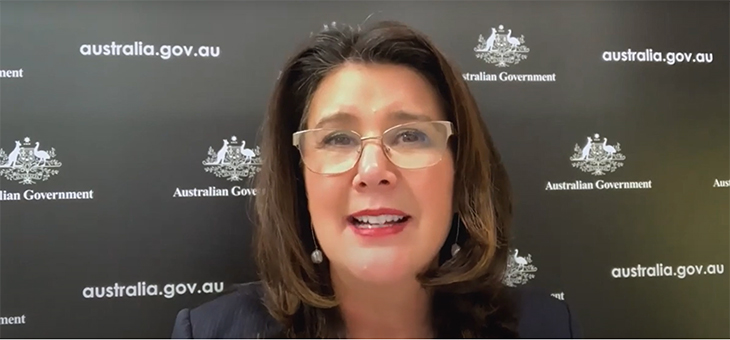How much information would you be willing to share to get a tailored retirement plan?
The federal government’s minister for superannuation, financial services and the digital economy, Jane Hume, believes as more people embrace the Consumer Data Right, ‘hyper-tailored’ retirement income plans could become a reality.
The Consumer Data Right (CDR) enables a person to transfer their data to another business to find products and services tailored to their needs and is designed to save consumers time and money.
Read: Are you retiring with more than you need?
The CDR was introduced to the banking sector in July last year and will be steadily rolled out across other sectors of the economy, with the energy sector the next area where it will be applied.
In a speech to the Australian British Chamber of Commerce, Senator Hume said that once the CDR was rolled out to more sectors of the economy, Australians approaching retirement might be able to use the system to customise their retirement plans.
“Applying predictive analysis to the data shared with your consent, you could receive a hyper-tailored assessment of what is the best retirement income for you based on your own actual data and lifestyle,” Senator Hume said.
Read: Federal government super fund proposal a ‘slush fund’, say critics
“While we’re a little way off this reality just yet – this is where we hope to get to, and beyond.”
Some of the potential information sources that Senator Hume said could inform retirement planning included health tracking, insurance, banking and government-held tax data.
“The CDR creates the secure infrastructure for easy and safe, opt-in consumer data-sharing,” Senator Hume said.
Read: Seven out of 10 Aussies can retire sooner than they think
“It puts consumers in the driver’s seat – giving households and businesses more power and control.”
Ms Hume explained that the system had started to gain wide acceptance in the banking sector, with 87 banks and their secondary brands now able to share data when requested by consumers.
A review of the CDR last year made 100 recommendations including consumer safeguards and opportunities to connect it to the broader data economy.
The government made some changes to the CDR rules last month, including empowering consumers to share their data more easily with certain trusted professional advisers, including their accountant, tax agent, financial counsellor, financial adviser or mortgage broker.
Is the CDR safe?
Strict controls have been built into the system and they are enforced by the Office of the Australian Information Commissioner (OAIC) and the Australian Competition and Consumer Commission (ACCC).
Only a business that has been accredited by the ACCC can provide services under the CDR and they must comply with privacy safeguards and rules that ensure your privacy is protected and your data is transferred and managed securely.
The CDR is an opt-in system, which means you have the choice to authorise a business to access your data and you can withdraw consent at any time.
You also control what data is transferred, what it can be used for and who it can be disclosed to, and you can ask for your data to be deleted if it is no longer needed.
Would you share your banking, insurance, health and financial data to improve your retirement planning? Why not share your thoughts in the comments section below?
If you enjoy our content, don’t keep it to yourself. Share our free eNews with your friends and encourage them to sign up.

